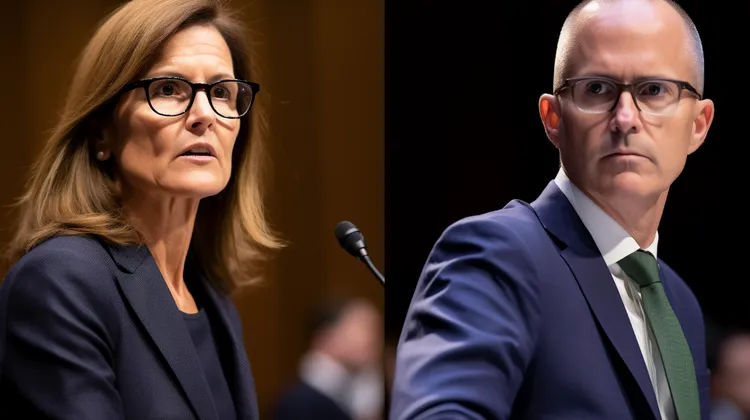XRP, the cryptocurrency associated with Ripple, has been the center of attention lately due to a legal battle between Ripple Labs and the U.S. Securities and Exchange Commission (SEC). The SEC has accused Ripple Labs of conducting an unregistered securities offering worth $1.3 billion through its sale of XRP tokens. This case has garnered widespread interest, and it has now taken an intriguing turn with the involvement of a prominent XRP lawyer who believes that the SEC exploited Ripple’s transparency to target its CEO, Brad Garlinghouse.
Mary Jo White, a former SEC chairperson who now represents Ripple Labs, recently stated that the SEC had taken advantage of Ripple’s open approach to regulatory compliance. Ripple Labs has always maintained that XRP is not a security, and they have been proactive in working with regulators since 2015. They have engaged in regular communications with the SEC and openly disclosed their token sales to the public. White argues that by doing so, Ripple inadvertently provided the SEC with the perfect ammunition to target Garlinghouse and Ripple Labs.
The lawyer believes that the SEC used Ripple’s transparency against them by painting a picture of willful misconduct or disregard for regulations. White suggests that the SEC deliberately ignored the context and instead focused on individual statements made by Brad Garlinghouse and other Ripple executives. These statements, according to White, were taken out of context and presented as evidence of fraudulent activity.
White’s assertion highlights an essential aspect of this case – the interpretation of the Howey test, which is used to determine whether a particular asset qualifies as a security. Ripple Labs has consistently argued that XRP does not meet the criteria set forth by the Howey test. The SEC claims that XRP is indeed a security because it is an investment contract. This disagreement in interpretations is at the core of the legal battle.
Critics argue that the SEC’s case against Ripple Labs is arbitrary and that the regulatory framework surrounding cryptocurrencies remains unclear. They argue that the SEC has not provided clear guidelines for companies operating within the crypto space and that the agency is retroactively applying regulations to prosecute Ripple Labs. This lack of consistency and regulation has left many in the industry confused and uncertain about their own compliance measures.
By going after Brad Garlinghouse personally, the SEC appears to be attempting to set a precedent that could have implications for other crypto executives. Targeting high-profile figures within the industry could send a chilling effect throughout the cryptocurrency ecosystem, stifling innovation and discouraging companies from engaging with regulators in good faith.
The legal battle between Ripple Labs and the SEC is of significant importance not only for the future of Ripple and XRP but also for the broader cryptocurrency industry. If the SEC is successful in establishing XRP as a security, it could have far-reaching implications for numerous other cryptocurrencies. The determination of whether a specific token is a security or not will impact how it can be traded, purchased, and sold within the United States.
With Ripple Labs and Brad Garlinghouse fighting back against the SEC’s allegations, it is clear that they are ready to challenge the agency and raise questions about regulatory overreach and the consistency of its approach to cryptocurrencies. The outcome of this case is uncertain, but it will undoubtedly shape the future of crypto regulations and have a lasting impact on the industry as a whole.



